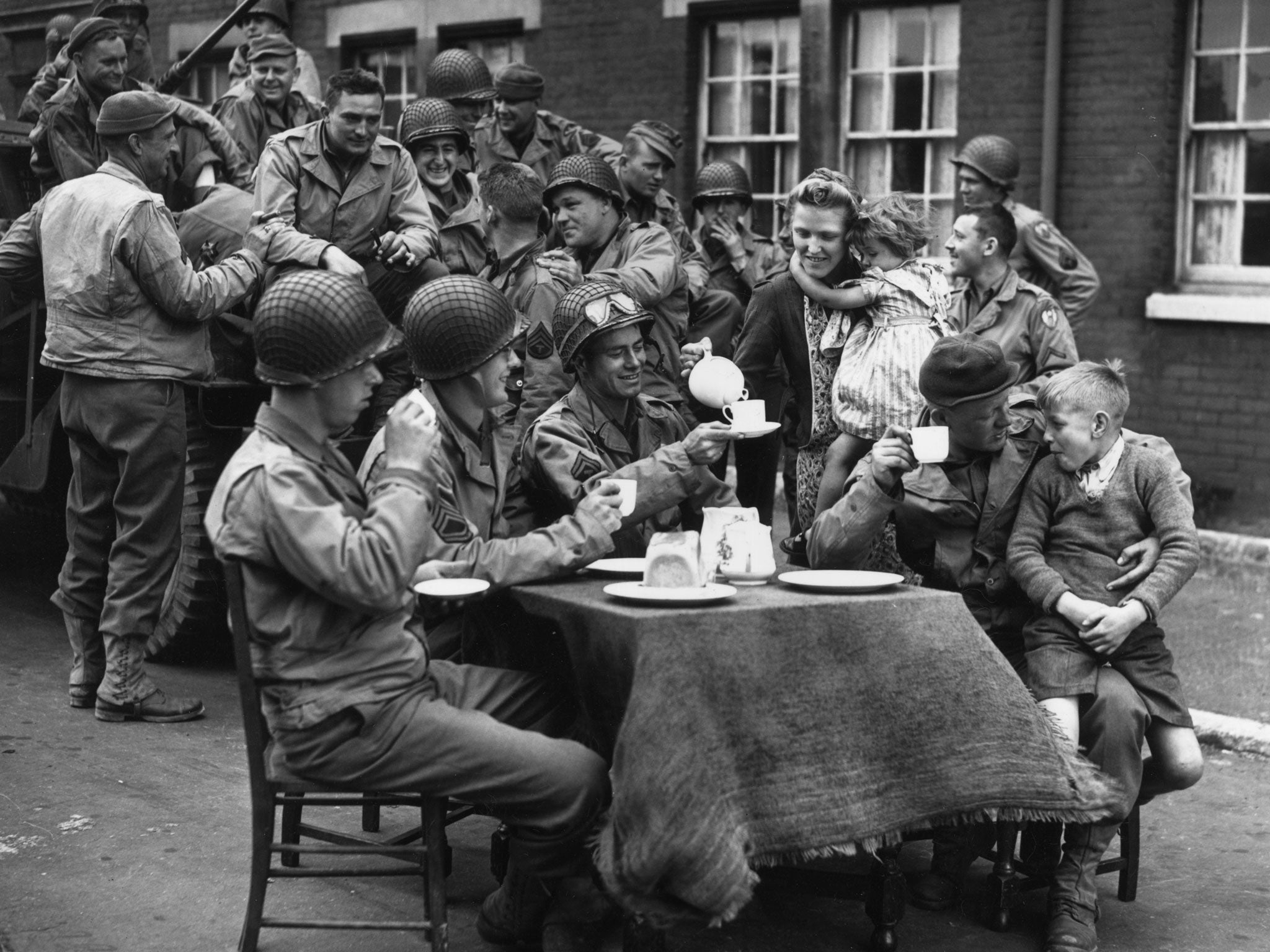Yanks and Limeys by Niall Barr, book review: Oversexed, overpaid and causing trouble
A lively history lays bare the relationship between British and US servicemen

Your support helps us to tell the story
This election is still a dead heat, according to most polls. In a fight with such wafer-thin margins, we need reporters on the ground talking to the people Trump and Harris are courting. Your support allows us to keep sending journalists to the story.
The Independent is trusted by 27 million Americans from across the entire political spectrum every month. Unlike many other quality news outlets, we choose not to lock you out of our reporting and analysis with paywalls. But quality journalism must still be paid for.
Help us keep bring these critical stories to light. Your support makes all the difference.
From 1941 to 1945, US and British soldiers marched arm in arm, two great oxen drawing the great plough of democracy. That was the official version. In reality, they were more like two grumpy cats, each determined to hog the sofa. Americans jeered at the Limeys as tea-slurping slowcoaches. The Brits derided the Yanks as Johnny-come-latelies whose bragging was not matched by results. Was it harmless joshing between pals, or was something more serious afoot?
Niall Barr doesn't come down on one side or the other but describes the converging of the two armies as a fraught affair. The root problem was that the US and British military knew little about each other. Even the possession of a common language was less of an asset that one might assume. Some US officers could barely follow the clipped muttering of their British counterparts. On the ground, the soldiers remained virtual strangers. Most Americans' first impressions of our sceptred isle were deeply unfavourable. The disputes went beyond jokes about tea and Britain's lousy weather. The tactics of the two armies differed fundamentally, reflecting their respective demographic resources. America had millions of men to draw on and its commanders could afford to favour a policy of driving back the Germans like a steamroller, whatever the human cost. British commanders had far fewer men at their disposal and were haunted by memories of the fatalities at Passchendaele and the Somme. Unsurprisingly, their approach was more cautious, which some Americans chose to interpret as cowardice.
Beyond strategic differences, the British were tortured by the dawning realisation that part of the price of victory over Nazi Germany would be Britain's own eclipse as a great power and the start of the "American century". The Brits did not enjoy the sight of the Americans sailing up the escalator while they were travelling down. It was only for a short period that the two sides felt, and were, truly equal. What is remarkable, Barr says, is how long the British held on to the steering wheel. Through sheer bossiness, and thanks to a feeling of unpreparedness on America's part, the British kept the upper hand throughout the campaigns in North Africa and Italy.
But in 1944 and still more in 1945, as the endgame approached, America's growing might made itself felt. The illusion of equality could no longer be maintained and the Americans became progressively less willing to indulge the foibles of their prickly, status-obsessed partner. "The Americans now feel that they posses the major forces at sea, on land and in the air," Alan Brooke lamented to Sir Henry Wilson, the British Supreme Allied Commander in the Mediterranean, in 1944. "They are determined to have an ever-increasing share in the running of the war in all its aspects," he added. "I can assure you we are watching these unpleasant developments very carefully."
Monitoring these "developments" had no effect at all, and Barr says the squabbles continued and even worsened as the two armies advanced into Germany. Like many historians of the Second World War, Barr places much of blame on Montgomery for the worsening relationship.
The British general's prima donna-like behaviour and one-upmanship infuriated his American counterparts and eventually wore down even the extraordinarily patient Eisenhower, who emerges as a positive saint in all this. Not that Ike's team spirit cut any ice with Monty. Barr writes that he insisted on treating him with disdain.
Barr is scrupulously fair to the often-insufferable Monty, noting that his objections to US strategy were sometimes well founded. Still, his description of the way Monty commandeered the German surrender in 1945, making absolutely sure the cameras captured him receiving the surrender – not the dreaded Yanks – makes for uncomfortable reading. No wonder relations were deeply frayed at the end of the war, when the Yanks took their revenge by abruptly cutting off the "Lend Lease" arrangement, which left Britain on the edge of bankruptcy. Barr quotes one disgruntled US soldier writing home that he hoped the next war would be with Britain. After reading this well crafted and absorbing book, I wasn't surprised.
Join our commenting forum
Join thought-provoking conversations, follow other Independent readers and see their replies
Comments